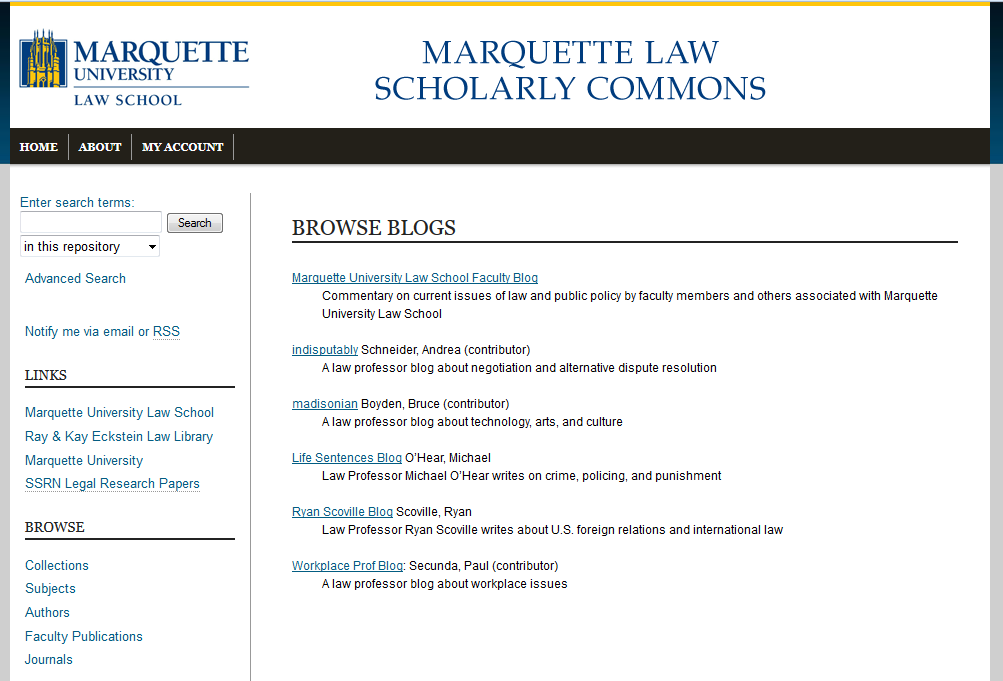In the past few years, blogging has become an increasingly accepted and respected form of scholarly output. Though blog posts don’t carry the same cachet as peer-reviewed articles, many still contain valuable information and can act as a timeline of campus events. But oftentimes great blog posts get buried underneath newer content and, given the layout and design of most blogs, are rarely rediscovered by new or returning visitors. This is where the library and the repository can play a crucial role and meet a unique need that some campuses don’t even realize they have. Turns out, more libraries are already hosting blog content in their repositories than you might think. Law schools, in particular, are embracing the repository as a permanent home for blog content from deans, faculty, and students.
At Roger Williams School of Law, Dean David Logan writes a frequently updated blog about campus life, which the library archives in its repository, Docs@RWU. The posts start in 2008 and run up to the present day, providing a unique timeline of the school and helping preserve Dean Logan’s legacy. Golden Gate University School of Law uses the repository as a second online home for the Golden Gate Law Review Blog, which “showcases the scholarship conducted by our law review student editors and others.” American University Washington College of Law uses the repository to publish their Modern America: Law & Politics Blog, which “features commentary, links, and information to all things Modern American. The Modern American is American University’s Washington College of Law scholarly publication dedicated to diversity.” Marquette University Law School’s repository, Scholarly Commons, displays a link to browse various blogs right on the repository homepage. In addition to five blogs by individual Marquette professors, the repository also links to the official Marquette University Law School Faculty Blog.
Want to learn more about how you might integrate blog content into your repository? Contact us at support@bepress.com.

Marquette University Law School faculty blogs






